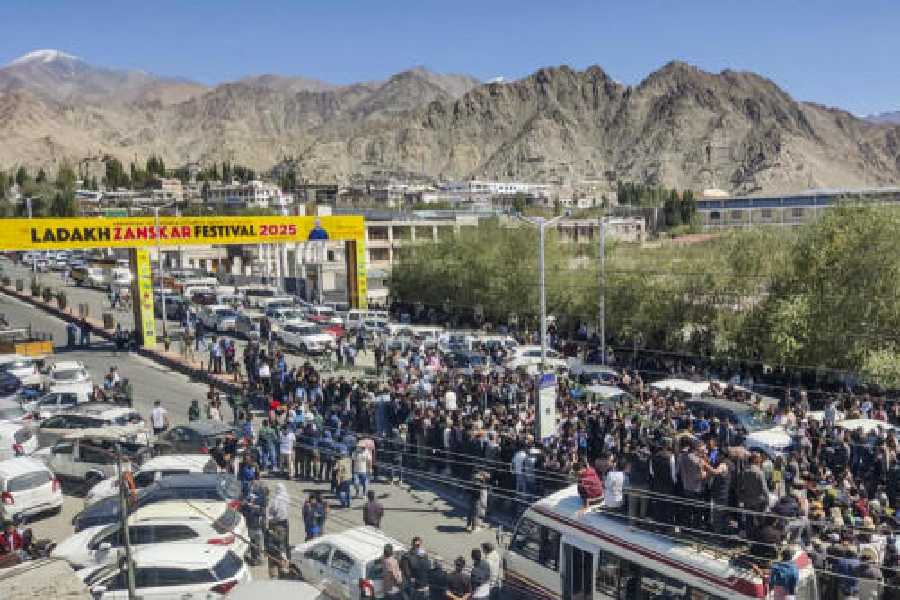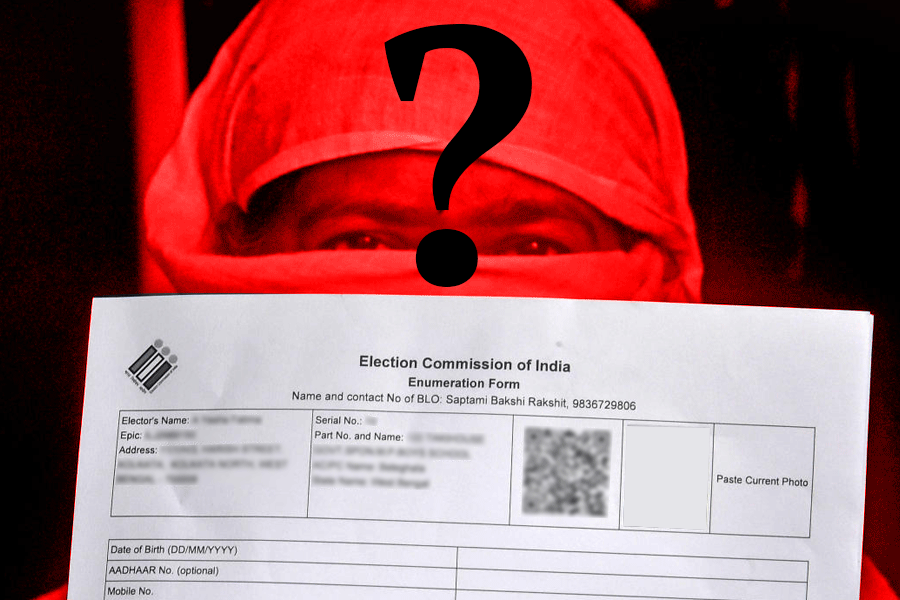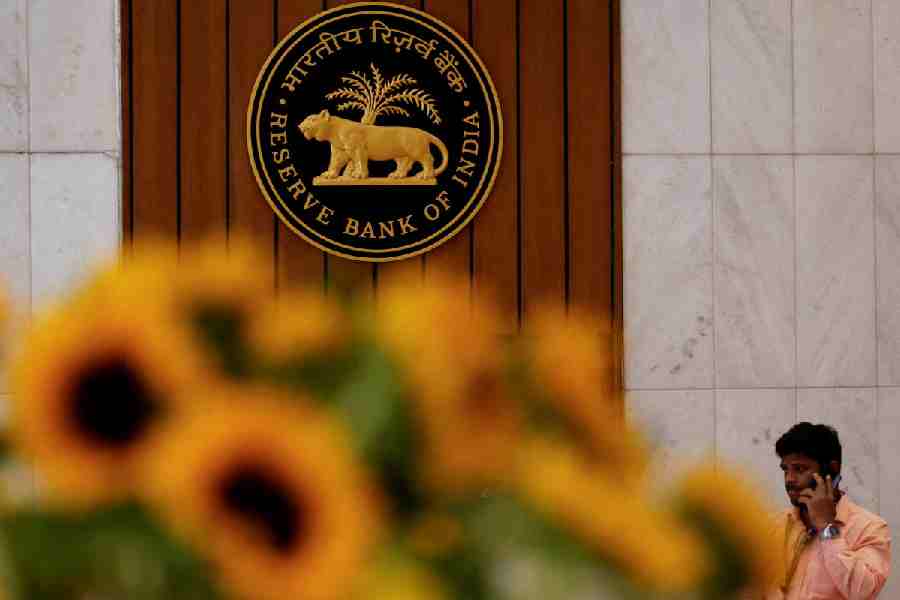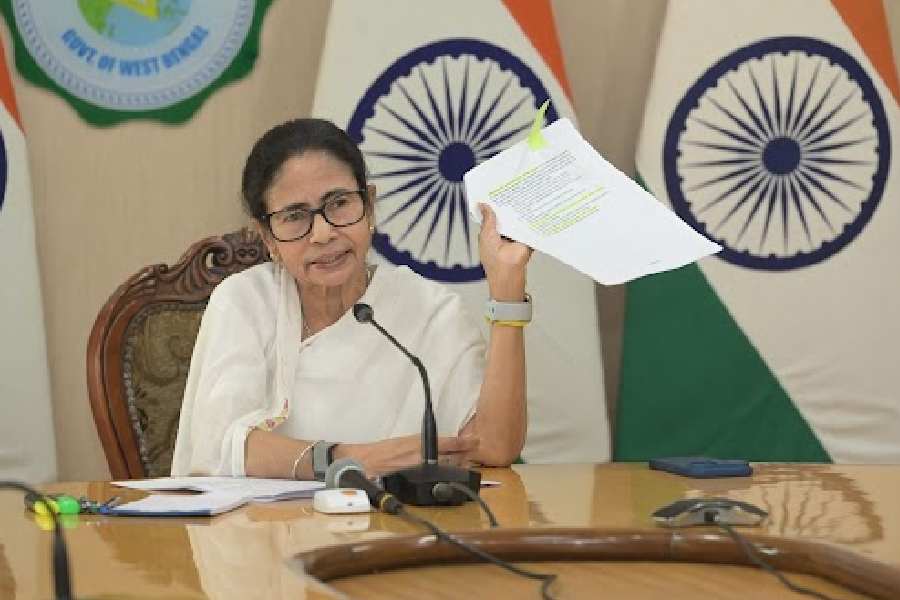Jammu, Ladakh and Pakistan-occupied Kashmir (PoK) have been rocked by anti-government protests in the past few weeks in a stark contrast to the Valley, which appears to have taken a sabbatical from unrest. Kashmir politicians, however, have cautioned against taking the silence for granted.
Doda district in Jammu witnessed unprecedented protests last month against the arrest of AAP MLA Mehraj Malik under the Public Safety Act. Several people were injured in the clashes that broke out between the MLA’s supporters and
the police.
The Doda unrest was followed by the first-of-its-kind protests in Ladakh demanding statehood and special status under the Sixth Schedule. Four civilians, including a Kargil war veteran, were killed in the turmoil. The police arrested climate activist and agitation spearhead Sonam Wangchuk under the stringent National Security Act and shifted him to a jail in Rajasthan’s Jodhpur.
In PoK, violent demonstrations left at least 10 people dead and hundreds injured. The protesters had issued a 38-point charter of demands, including subsidies on essentials such as food and electricity and the abolition of reserved seats for refugees in the Assembly. The protests were called off on Saturday after the government accepted most of the demands.
Jammu, Ladakh, Kashmir and PoK were part of the Dogra-ruled princely state of Jammu and Kashmir. For decades, it was the Valley that wore the mantle of unrest, witnessing countless mass agitations.
The Valley residents, while maintaining a studied silence, have watched with trepidation as one region after another descended into chaos.
PDP chief Mehbooba Mufti on Saturday spoke about the uprising in Ladakh, PoK and Uttarakhand — where youths are protesting alleged cheating in an exam conducted by the Uttarakhand Subordinate Services Selection Commission — as a wake-up call for both India and Pakistan.
“Because when your future feels bleak & your dreams are shattered — resistance knows no borders. These are young people who toiled for a future, studied hard, followed every rule and held on to a ray of hope,” she posted on X.
“But now they see the promise of that future slipping away. They aren’t just protesting.... This isn’t just noise. It’s heartbreak turning into resistance. This is not a rebellion but a cry for survival. They are not asking anymore. They are demanding what’s rightfully theirs — Accountability. Justice. Opportunity. Dignity.”
Chief minister Omar Abdullah recently said Ladakh was not even promised statehood and celebrated the Union Territory status in 2019 before feeling “betrayed & angry”.
“Now try to imagine how betrayed & disappointed we in J&K feel when the promise of statehood to J&K remains unfulfilled even though we have gone about demanding it democratically, peacefully & responsibly,” he had said, highlighting a simmering anger in the region.
The last time the Valley witnessed widespread protests was in 2016 following the death of Hizb poster boy Burhan Wani. The government used its iron fist, leaving around 100 civilians dead, and thousands injured and jailed. The crackdown showed no signs of abating until the Centre scrapped Article 370 in 2109. By that time, a generation of youngsters appeared exhausted by years of clampdown. The Valley remained shut for months because of curfews and shutdowns, but the protests were few and far between.
There were multiple occasions when Kashmir teetered on the edge of a violent outburst, but returned to calm after days of tension. A recent case in point was the outrage over the installation of a plaque carrying Ashoka’s emblem at the Hazratbal shrine.
Valley politicians and experts believe that a relentless government crackdown, with no let-up in arrests or summons, helped the Centre tamp down protests, although militancy remains a formidable challenge with the emergence of jungle warfare.
Moderate Hurriyat chief Mirwaiz Umar Farooq, who was on Saturday allowed to address a gathering at Srinagar’s Jamia mosque after “three weeks of restrictions”, said: “Imposing bans, placing restrictions, terminating people from government jobs, confiscating the properties of those leaders who are no longer alive, like late Geelani sahab’s, whose old widow lives there, or attaching the homes of youth who may have crossed over — while their families continue to live there — is extremely unfortunate.”
“Hearts and minds cannot be won through coercion, but through compassion and understanding,” he told the gathering.










